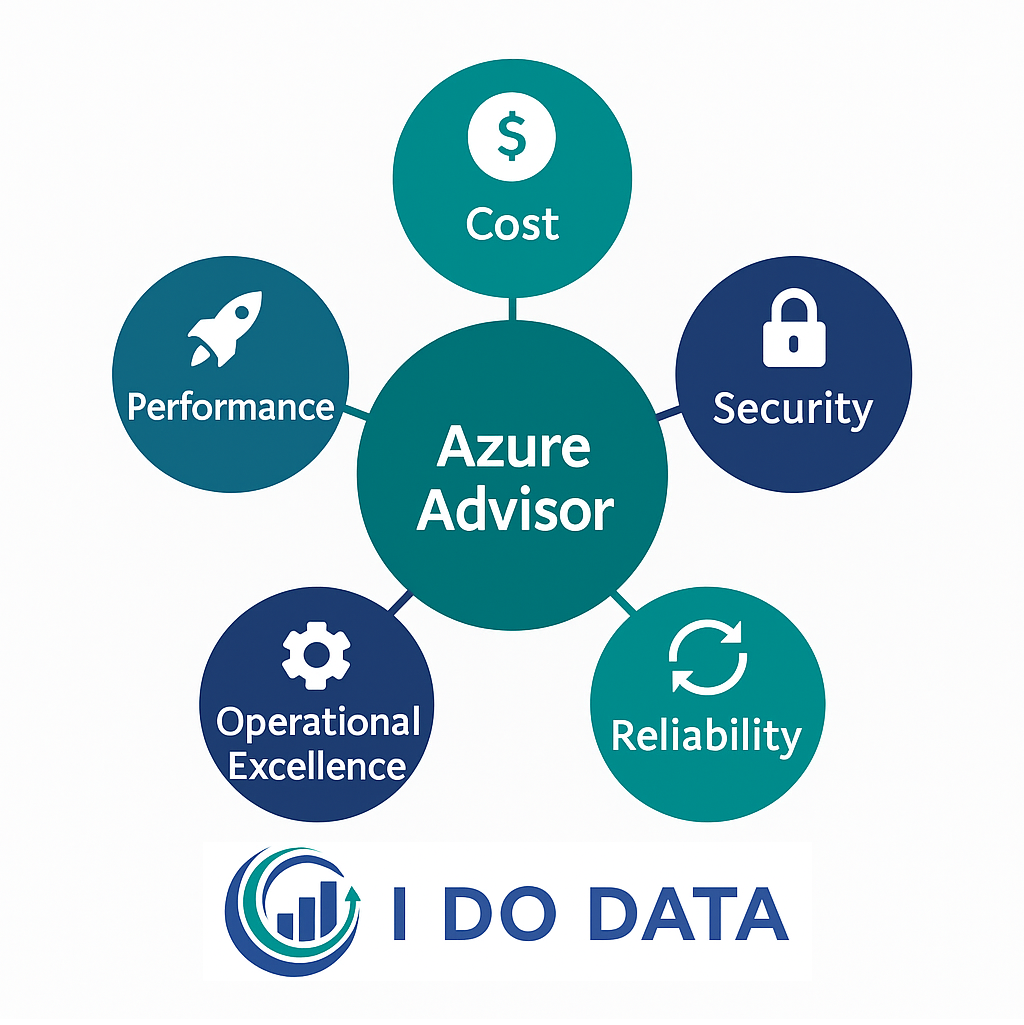Azure Advisor is a recommendation engine that helps you optimize your existing Azure resources. It analyzes how your services are configured and used, and then suggests improvements in key areas such as cost, security, performance, reliability, and operational excellence.
Areas of Recommendations
Azure Advisor provides guidance in the following categories:
- Cost
- Helps reduce unnecessary spending.
- Identifies virtual machines or database servers that are too large or underutilized.
- Suggests savings through reserved instances and reserved capacity.
- Security
- Works alongside Microsoft Defender for Cloud to detect threats and weaknesses.
- Highlights missing security controls or best practices.

3. Reliability
- Improves service continuity and availability.
- For example:
- Identifies virtual machines without backups or replication.
- Suggests grouping VMs into availability sets.
- Checks whether storage accounts have soft delete enabled.
- Suggests improvements to gateways and redundancy.
4. Operational Excellence
- Improves efficiency, resource management, and deployment practices.
- Examples include enabling tag inheritance from resource groups.
5. Performance
- Recommends ways to improve the speed of your resources.
- For example:
- Use Premium Storage for certain VMs.
- Adjust SKUs or VM sizes.
- Check if Cosmos DB accounts have traffic from unconfigured regions.
Sources of Recommendations
Azure Advisor pulls recommendations from multiple Azure services, including:
- Azure Security Center (part of Defender for Cloud)
- Azure Cost Management
- Azure SQL Database Advisor
- Azure App Services
Accessing Azure Advisor
You can access Advisor recommendations through:
- The Azure Portal,
- The Azure API, or
- Notifications when new recommendations become available.
More information and examples are available in the official documentation and Azure Advisor service page.
Why Azure Advisor Matters
Azure Advisor helps ensure that your resources are:
- Cost-effective,
- Secure,
- Reliable,
- Well-managed, and
- Performant.
It complements governance features such as Azure Policy, resource locks, and compliance tools like Microsoft Purview.
Next Steps
For AZ-900, you don’t need to memorize every recommendation Azure Advisor can make. Instead, focus on the idea that Azure Advisor analyzes your resources and suggests improvements in cost, security, reliability, performance, and operations.
If you’d like a structured explanation of all these AZ-900 fundamentals, our AZ-900 video course guides you through each topic – or go back to the topics in the AZ-900 exam.
Please click here to find out more about Microsoft’s AZ-900 exam.